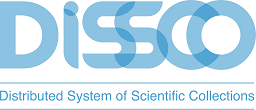Please use this identifier to cite or link to this item:
http://dx.doi.org/10.34960/38| Title: | D6.5 Open access implementation guidelines for DiSSCo |
| Authors: | Saarenmaa, Hannu Agosti, Donat Dillen, Mathias Egloff, Willi Gagnier, Pierre-Yves Groom, Quentin Hardisty, Alex Raes, Niels |
| Keywords: | Policy harmonisation & International coordination;biodiversity;policy;open access;open science;open data;ICEDIG;DiSSCo;digitization;guide line;manual;FAIR |
| Publication Date: | 2019 |
| Publisher: | ICEDIG |
| Citation: | Saarenmaa, Hannu, Agosti, Donat, Dillen, Mathias, Egloff, Willi, Gagnier, Pierre-Yves, Groom, Quentin, … Raes, Niels. (2019, September 30). Open access implementation guidelines for DiSSCo. Deliverable D6.5. Helsinki: ICEDIG. http://doi.org/10.5281/zenodo.3465285 |
| Abstract: | The paper investigates how to implement open access to data in collection institutions and in the DiSSCo research infrastructure. Large-scale digitisation projects generate lots of images, but data transcription often remains backlogged for years. The paper discusses minimum information standards (MIDS) for digital specimens, and tentatively defines 4 hierarchical MIDS levels. Even partially available data can be useful for some purposes and it is recommended that data and media be made openly accessible after minimal delay. The paper then discusses the FAIR concepts and obstacles and restrictions to making data openly accessible. Legal restrictions for making data openly available are discussed from the perspective “as open as possible, as closed as (legally) necessary”. Specific legislation applying to DiSSCo data are listed and guidelines on how to deal with each are made. The information architecture of DiSSCo is briefly described from the perspective of facilitating open access to data, and the essential features of DiSSCo and GBIF are compared against each other, noting that both have their distinctive roles but need close cooperation. Data policies and data management plans (DMP) of six ICEDIG collection institutions are reviewed. Typically, only one or the other exists, depending on how digitisation and related data management is organised. Data policies are found at institution level whereas DMPs seem to belong to project level. The paper comes to the following conclusions: 1) Digital Specimen Objects (DSO) must be findable and accessible already at the lowest (MIDS-0) level. Data should be deposited in a trusted public research data repository. 2) As far as possible, projects must enable third parties to access, mine, exploit, reproduce and disseminate this data by using a copyright waiver such as CC0 or an open access licence such as CC-BY. 3) Exceptions to openness policy must be stated clearly and strictly limited to reasons of national security, legal or regulatory compliance, sensitivity of collection information, and third party rights. |
| URI: | https://know.dissco.eu/handle/item/104 |
| DOI: | https://doi.org/10.5281/zenodo.3465285 |
| Appears in the Folders: | ICEDIG Work Package 6 - Technical Architecture & Services Provision |
Files in This Item:
| File | Description | Size | Format | |
|---|---|---|---|---|
| Deliverable D6.5_ICEDIG_Open Access Implementation Guidelines For DiSSCo.pdf | 497.04 kB | Adobe PDF | View/Open |
This item is licensed under a Creative Commons License
